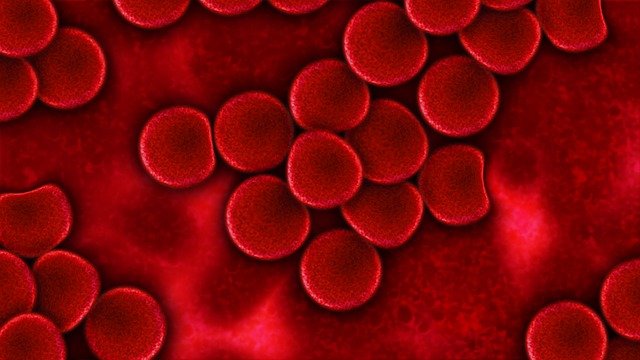We know how much Aussies enjoy a weekend beer or a quick post-work Scotch. Most Australian households spend about $32 per week on alcoholic beverages but while the majority of drinkers are responsible, it is important to understand the effects of alcohol on your system.

While it may help you have a good time, alcohol is known to damage your body (like all other drugs) especially if you indulge in binge drinking daily. Even small amounts of alcohol can result in the development of a multitude of diseases, including several cancers.
The harm caused by alcohol depends on the frequency and quantity of consumption as well as the quality of the alcohol consumed. Other factors that determine the harmful effects are your physical and mental condition, age, drinking duration, genetics, nutrition, metabolism and other social factors.
The effects of alcohol are immediate as well as long-lasting. The immediate consequences fade within a day while the long-term effects of alcohol build up over time and can have a significant negative impact on your health and well-being.
The short-term effects of alcohol
The harmful short-term effects of alcohol are most evident when you indulge in binge drinking or drinking more than you should in one sitting. For nearly one-third of Australian drinkers, binge drinking is a social concern.

The short-term effects of alcohol are:
- Vomiting
- Higher risk of falling and having accidents
- Alteration in behaviour, usually violent or angry behaviour causing harm to yourself or others
- Interpersonal conflict
- Lowering of inhibitions leading to risky behaviour
- Alcohol poisoning
- Causing harm to yourself
- Memory loss
- Impaired judgement and reduced coordination
- Dizziness and fainting
- Higher risk of being in road accidents
- Headaches and hangovers
The long-term effects of alcohol
The more you drink, the more likely you are to experience the long-term effects of alcohol. If you stick to the minimum recommended amounts as per Australian guidelines, the risk of dying from alcohol-related complications remains below 1%.
If you want to master the art of healthy ageing, you should understand the long-term effects of alcohol abuse:
- Increased risk for a large number of cancers such as those of the stomach, bowel, mouth, throat, liver and many others
- Liver failure and other diseases
- Nutritional concerns such as deficiencies and malnutrition
- Cognitive impairment and higher risk of depression as well as brain conditions such as stroke
- Higher risk of chronic conditions such as diabetes and obesity
- Impotence and fertility issues
- Cardiovascular conditions
- Heart problems such as high blood pressure and heart attacks
- Breakdown of social life leading to dysfunctional relationships
- Alcohol addiction and other substance abuse
- Harming others or even yourself with a higher risk of suicide

Apart from the physical problems that alcohol causes, there are two major effects of alcohol consumption which can have a serious impact:
Changes in tolerance
As you drink more, your tolerance level for alcohol increases. This means that you need more and more alcohol to experience the same effect that you would get earlier. This is because your body develops coping mechanisms to deal with the intake. For instance, your liver works overtime to metabolize alcohol and excrete it faster. Do not mistake a higher tolerance for a better-functioning body – you are still vulnerable to the harmful effects of alcohol.
Increased dependence
Dependence is another word for alcohol addiction. If you require alcohol to function, you have developed a dependence on it. When alcohol becomes a central part of your life, you spend a considerable amount of time thinking about it, purchasing it and abusing it, and the rest of your time recovering from it.
The long-term effects of alcohol on the organs of the body
Alcohol has a wide-ranging impact on the body and its effects can be felt on various organs. Here is what alcohol does to you:
Heart
Increases the risk of heart disease and leads to weakened heart muscles increasing chances of failure.
Liver
Regular consumption has been known to result in a fatty liver which negatively alters its functions. Excessive drinking leads to liver inflammation which can easily turn into hepatitis or cirrhosis and ultimately liver cancer.
Skin
The skin is the biggest organ of the body and alcohol massively dehydrates the skin. This leads to reduced function and long-term permanent detrimental effects.
Kidneys
Alcohol is a known diuretic, which means it increases urine output. If you drink too much, you will urinate a lot. This leads to loss of electrolytes and body fluid and ends in cellular dehydration.
Bowels
Alcohol is a known gut irritant and excessive intake may lead to symptoms of irritable bowel as well as increase the risk of bowel cancer.
Pancreas
Continuous drinking is known to cause pancreatitis i.e. inflammation of the pancreas that can lead to permanent damage and increase chances of cancer.
Stomach
Being a gut irritant, alcohol can induce nausea, vomiting and in rare cases, diarrhoea. Excessive and long-term drinking increases diseases of the upper gastrointestinal tract including the risk of developing cancer.
Reproductive system
Many people feel that alcohol boosts their sex drive but this is not medically true. It has this effect because it lowers inhibitions in the short term. In the long run, alcohol has been found to decrease sex drive and sexual performance. For men, it lowers blood testosterone levels and leads to fertility issues.
In the case of women, excessive drinking disrupts the menstrual cycle and leads to problems with ovulation. This can affect your chances of having a baby. All women planning pregnancy, expecting a child or breastfeeding should refrain from alcohol consumption. Alcohol consumption during pregnancy leads to higher risks of premature birth, miscarriage, lower birth rates and stillbirth.
Brain
Being a depressant, alcohol slows down the activity of the central nervous system which has a cascading impact on the rest of the organs and body systems. Abusing alcohol in the long run can lead to brain impairment, cognitive loss and brain injury.
Breasts
The most aggressive and prevalent form of cancer among women is breast cancer. There is a definite relationship between alcohol consumption and breast cancer. Drinking does not cause breast cancer but it greatly increases the chance of developing cancer over a lifetime. The risk of breast cancer depends on genetics, lifestyle and many other factors so it is recommended to get a regular check-up.
Immune system
With excessive consumption, one will notice severe long-term effects of alcohol on the immune system. Alcohol suppresses the immune system increasing the chances of falling ill more frequently and developing chronic diseases.
It is highly evident from the above that alcohol leads to the deterioration of the entire body and its many systems. It has potent negative effects on virtually every organ in the body so you should limit its consumption, if not avoid it entirely.
How alcohol works
From the minute you take a sip, alcohol enters the various parts of your system and works in this way:
- It makes its way to your blood through the lining of your mouth, stomach and intestines
- Reaches all parts of the body including the brain, slowing down the functioning of all parts
- Alters chemical pathways, affecting how you behave, think and feel
- Passes through the system and ends up in the liver
- Is broken down by the liver and excreted from the body
Alcohol is like any other drug and affects everyone who drinks, even those who believe they have a strong constitution and can ‘handle their drink’. While some people can drink more before showing the effects of alcohol, it impacts everyone in different ways.

How the effects of alcohol manifest within your body depends on any number of factors, such as:
- Current physical and mental health condition
- Usage of medicines and other drugs
- Gender
- Chronic and acute medical conditions
Alcohol can also affect you rather rapidly if you:
- Have a genetic predisposition to lower tolerance
- Are young
- Have a lower fat percentage
- Drink on an empty stomach
- Have lower muscle percentage
- Don’t drink regularly
The effects of alcohol on blood alcohol level (BAC)
Blood alcohol level (BAC) is the amount of alcohol in your blood. BAC rises as you continue drinking. A BAC of 0.01 means that every 100 ml of your blood contains 0.01 grams of alcohol. On average, if you are in good health, one standard drink will raise your BAC by 0.02 and take about an hour to be broken down.

This is how various levels of BAC affect your body:
Up to 0.05:
- Feeling optimistic and happy
- An increasing sense of relaxation and confidence-induces you to talk more
0.05 – 0.08:
- Drastic reductions of inhibitions
- Impairment of movement and judgement
0.08 – 0.15:
- Possibility of nausea and vomiting
- Slurring of speech
- Emotional upheaval
- Impairment of balance, vision, reflexes and coordination
0.15 – 0.30:
- Possible loss of bladder control
- Feeling lethargic and sleepy
- Inability to maintain balance to walk
- Difficulty in breathing
- Unconsciousness (blackout) or a whiteout
- Loss of memory
Over 0.30:
- Coma
- Possible death
You may be more familiar with the BAC through the breath tests conducted by the Australian police. Driving with a BAC of over 0.05 is illegal in Australia. The quicker you drink, the faster your BAC will rise. It continues to rise even after you stop drinking as the rest of the alcohol is absorbed and metabolized by the body.

The only way you can lower BAC is through time. All the suggested measures of vomiting, cold showers or drinking coffee may make you feel more awake but do nothing to lower BAC. The following are the effects of alcohol at varying levels of BAC:
The other short-term effects at varying levels of BAC include:
- Harming yourself or others, accidentally or deliberately
- Being in a roadside accident
- Having unprotected or unwanted sex
- Hangovers
- Alcohol poisoning
There are other long-term effects of alcohol, but this is not connected to BAC. BAC is a temporary measure of the current level of alcohol in your blood.
The long-term effects of alcohol on life and relationships
Other than the health concerns mentioned above, there are social and financial long-term effects of alcohol that need to be considered. Socially alcohol can cause you to display inappropriate or even dangerous social behaviour as it tends to lower your inhibitions. These social actions can range from something rather silly or embarrassing, all the way up to committing a possible felony.
While those might be short-term social effects of alcohol, the long-term effects of alcohol can alter your behaviour so much that it negatively affects your relationship with your loved ones. It could also wreak havoc on your work life and relationships.

The effects on finance become apparent when you develop an addiction or become dependent on alcohol. In this case, you may end up spending a large chunk of your finances on drinking which negatively affects your financial health.
Explaining a hangover – one of the most common effects of alcohol
We’ve all had one and we all dread them. A hangover is one of the most common effects of alcohol consumption. It is the umbrella term for a set of distressing symptoms experienced the day after a bout of excessive drinking.
You’re likely to experience a hangover if you drink too much, but there isn’t a standard measure that applies to everyone. You may experience a hangover with even one drink or after the fourth drink, depending on the amount and quality of alcohol.

The symptoms of a hangover are:
- Extreme dehydration
- Irritation of the stomach leads to nausea and vomiting
- Drastic drop in blood sugar levels
- Frequent urination
- Generalized inflammation
- Expansion of blood vessels
- Headaches
- High sensitivity to light and sound
- Spinning feeling or dizziness
- Decrease in quality and quantity of sleep
- Nausea and vomiting
- Extreme thirst
- Diarrhea
- Fatigue and weakness
- Muscular pain
- Irregular heartbeat
- Trembling
- Emotional upheaval leading to anxiety, irritability and depression
- Loss of concentration
- Dry lips, mouth, skin and eyes
A hangover begins as your BAC begins to approach zero, and a hangover may last up to 24 hours. It goes away on its own but most people pop a pill or increase their hydration to help speed it up.
You’re more likely to have a hangover if you:
- Drink on an empty stomach
- Mix other drugs (like tobacco) with alcohol
- Drink dark-coloured spirits like brandy, whisky or rum
- Do not get enough sleep
To reduce the effects of a hangover, here’s what to do:
During drinking:
- Pace your alcohol intake by sticking to one drink or less every hour
- Drink a glass of water between each alcoholic drink
- Go to bed and get at least six hours of sleep
After drinking:
- Drink lots of water to re-hydrate
- Eat bland foods that are lighter on the stomach
- Take a painkiller like paracetamol, but avoid aspirin because it may irritate the stomach
If you experience a hangover regularly or find that your hangover is affecting your work or personal life, you should consider the possibility that you are dependent on alcohol. In such cases, it is ideal for you to take a step back, take steps to reduce your drinking and seek medical or other help.
What is the recommended amount of alcohol?

The Australian Guidelines to Reduce Health Risks from Drinking Alcohol provide the following guidelines for the amount of alcohol that is safe for consumption:
For adults: The average healthy adult should not have more than 10 standard drinks in a week and not more than four in one day. At this ratio, the risk of harm from diseases or injuries is low. Of course, this depends on the individual, the amount of alcohol in each drink, and the quality of the alcohol.
For those under 18 years of age: No alcohol. Children below 18 years of age should not be drinking alcohol.
For pregnant or breastfeeding women: To prevent alcohol-related harm to their unborn children, pregnant women or those planning for pregnancy should stay away from alcohol. For breastfeeding women, it is also advised that they avoid alcohol to protect their children.
One thing that stands out from the guidelines is that lower consumption equates to lower risk. Any alcohol-related harm can be mitigated by cutting down consumption while some individuals should eliminate alcohol from their lives to improve their health.
Monitoring your alcohol consumption is vital to helping you cut it down. Excessive intake can lead to weight gain and make you obese, which puts you at other health risks as well. This varies for every individual and depends on several other factors.
The effects of alcohol mixed with other drugs
Alcohol does not mix well with other drugs including over-the-counter medication. Consuming alcohol while taking other drugs leaves you at risk for several health conditions. This is because of the following reasons:
- Alcohol tends to mask the effects of other drugs and medications
- It increases the harmful side effects of most other drugs
- It reduces the efficacy of other medications such as antibiotics and medicines for chronic conditions
Quitting alcohol and facing the effects of alcohol withdrawal
Withdrawal symptoms are fairly common as you begin to reduce your drinking or stop it completely. Your brain will feel excitable or irritable for 4-7 days and you may experience the following symptoms:
- Anxiety and depression
- Nausea and vomiting
- Headaches
- Shakes and tremors
- Excessive perspiration
- Difficulty falling asleep and staying asleep
For those drinking eight or more drinks a day, any decision to stop drinking must be discussed with a medical professional. Sudden ceasing of alcohol at this quantity may require medicines to prevent seizures. Regardless of the severity of symptoms, it is best to stop alcohol to prevent increased risk of brain damage and conditions such as dementia.
There are several authorities and groups to help people who are dependent on alcohol. These services are available throughout Australia even in remote country areas.
While Australian guidelines put the upper limit at four drinks a day, it is long believed that even consumption of two drinks a day can cause ill effects in the long run. The World Health Organization (WHO) believe that the long-term effects of alcohol directly and indirectly cause over 200 diseases.
If you’re reading this, it might be time to say No to the bottle and yes to a glass of fresh juice instead!

If you would like to talk to a counsellor online about addiction or find a psychologist, Avaana can help.



